Turnage: Anna Nicole (Pappano)
Need a subject for a new opera? Something to pull in the crowds? Something to brush the dusty cobwebs off a supposedly ailing art form? Need a plot containing smatterings of sex, drugs, sleaze, money, nasty deaths, corruption, dysfunction in all its forms...and a central, highly flawed but strangely sympathetic character whose fate is all but decided from the beginning?
All this is of course nothing new in operatic beginnings, as all the best (and many of the worst) offerings in the genre contain much of the above.
Quote:
"I wanna to blow you all.......a kiss!"
The Royal Opera's 2011 commission was no different, in that the fascinatingly lurid subject of Anna Nicole Smith is so fresh in many people's minds (whether what they know of her is the truth or just media-generated) and there are two things that generally stand out in the memory. They are sung about at great length.
It may seem a perverse subject for what may be termed 'grand opera' by some (although this work plainly isn't), but despite the obvious shock value, excitedly discussed by much of the artistic, and even more populist media in the months approaching the first night, on the face of it it's a perfect one. Ultimate success however is all down to the execution.
The work is spread over two acts and 17 scenes (Scene Zero being a 'three bar overture'). In the opening Act, Anna Nicole's life is set out in short sequences, with a narrative that takes her from her humble beginnings in Mexia (learning how to pronounce this takes up a good chunk of libretto), through her first, very quick, marriage to a burger flipper who provided her with her son, Daniel; her move to Houston, where the Wal-Mart job is discovered to be a dead-end, low wage descent into complete anonymity; the move into lap dancing, which is not too successful until the visit to Doctor 'Yes' following advice to 'You need to get some tits!'…and the bigger, the better, with just two minor drawbacks…chronic back pain for the rest of her life, and two pills a day to cope with it…for the rest of her life.
At least she is now a hit in the lap-dancing club (definitely not a strip club…it's where 'gentlemen' appreciate the female form without touching - an idea a 'Trucker' so poetically espouses), and is appreciated from afar by the other girls ('Bitch!').
Very soon afterwards, she meets 'The Rich One', J. Howard Marshall III. He is besotted, and behaving like a schoolboy in such a situation, tries his best to get her…in every way that could possibly mean. The age gap is 63 years, but Anna isn't too perturbed by this, in fact, is immediately drawn to the idea that she could be bought her dream ranch, but as 'there ain't no such thing as a free ranch' she goes straight to the man's heart, but this has absolutely nothing to do with his stomach.
The ranch, and so much more is now Anna's to play with, and her ambition knows no bounds, mainly where it comes to spending money. She is 'gonna rape the American Dream'. The two are married, and Anna is introduced to Howard Stern, the lawyer.
Now world-famous, for basically…being famous, Anna becomes the 'Patron Saint of Parties' by throwing the biggest party anyone has ever seen. Howard collapses, and soon after, dies. There is no will. Howard's family is refusing to let Anna have anything, so the long, ten year legal process begins, with Stern becoming more and more controlling as time goes on.
As time has gone on, Anna has taken to eating…a lot. She has also become addicted to painkillers. Stern isn't too happy with this, although he doesn't quite manage to stop her getting more of them. He realises the addiction is ruining her reputation (what's left of it anyway) but also knows that the media feeds off such self-destruction like vultures.
An appearance on the Larry King show (with a live link to her pet dogs) cements Anna's position in American life. Anna and Stern admit they still haven't had any money from the Marshall estate.
Stern is now in complete control of Anna's life, sending out regular press releases about what she is going to be up to, although when she tells him she is pregnant he jumps at the chance of making millions. The pregnancy and birth can be broadcast on a pay-per-view basis! Anna agrees, gives birth, and is back to the heights of celebrity status…briefly.
Anna's son comes to visit soon after her daughter is born. He dies tragically and Stern takes photos of Anna's immediate reaction. It's not long before Anna herself dies, on her own, full of drugs.
At least, this is the way the story pans out on stage. The ending is well documented, however the details of the way Anna Nicole lived and died are still contested to this day, a point that is often made here with frequent comments such as 'That's not the way it happened' or 'I didn't say/do that' from certain characters. Some artistic license is also used to mix up some of the timeline, especially in the shape of Howard Stern, who appears a few times in the first Act before being ushered off as he doesn't belong to that part of the story yet.
Much of the characterisation appears almost vaudevillian or slapstick, if not downright crude, but this reflects the often filthy and puerile, yet frequently amusing nature of the libretto (The 'Advisory warning' stating that the work contains 'explicit language and scenes of a sexual nature' is definitely worth taking note if you are of a sensitive or prudish disposition).
Richard Thomas (who previously penned the words to Jerry Springer - The Opera) revels in clever rhyming couplets and the initial impression is that he's just out to shock or disgust, yet he still finds room to give some depth and a touching quality in certain scenes, most notably towards the end of Anna's life when she reflects on how much she has wasted ('Made some bad choices, made some worse choices, then ran out of choices'), and for when Anna's mother (Virgie) is singing, generally despairing of her daughter and trying her best to get her to concentrate on her child rather than chase fame, fortune and ever more degrading sexual escapades.
These sections, depending on your point of view, either jar awkwardly with the rest of the relatively light-hearted take on things or bring the audience back down to earth with a bump, reminding us that underneath all the jokes there's actually a painful human drama trying to emerge.
Mark-Anthony Turnage's music is unashamedly post-modern and for this work, he draws on a huge amount of his influences, from blues and soul, to out-and-out 'Hollywood', with dashes of rock, pop, early 20th century classical and some direct quotes from the classic greats all thrown into the mix (I'm hoping I'm not the only one who expected the introduction to husband #1 to turn into the Steptoe & Son theme, but I probably am).
With huge orchestra and vocal forces at his disposal (and an on-stage band with a certain John Paul Jones on bass) this commission must have been something he had dreamed of following his two previous operas ('Greek' and 'The Silver Tassie'). Despite the fact that he has obviously toned down much of his modernism to suit the soap-opera quality of the story, and to allow the (amplified!?) voices to come through, there's huge amount to admire - perhaps bit too much. The difficulty with having so many variations of instruments to play with is that we have little noticeable cohesion in the music. Different ideas and styles come and go as quick as the scene changes, and so there's not much to grab hold of aurally for future reference and but perhaps this was the plan. There's a change of pace in the second Act however, and here we have some quite beautiful and haunting melodic writing to match Anna's more thoughtful moments, and a very powerful orchestral interlude during the 'ten years pass' scene change. It's almost as if Turnage can feel more himself as the drama begins to take over the fun and games of earlier scenes.
Antonio Pappano and the ROH Orchestra kick up a storm in the pit, and probably had a bit more leeway when it came to the louder end of dynamics, although judging by the sound of the band, there was little else written. It's all brilliantly played, and I'm sure the on-stage amplification helped. There's certainly no problem about hearing what's sung on the DVD, although having said that, I always find it useful to turn on the subtitles, especially for works I don't know (even in English language performances) and it's a useful hint for this DVD if you feel the need to get down and dirty with the filthy intricacies of Thomas's words. Sometimes there's a readability issue with the placement of the subtitles at the top of the screen when the in-house surtitles are also shown above the stage in the wide shots but you generally get the gist about what's being sung, as much of it is repeated several times.
Picture-wise, there is nothing to complain about. The NTSC disc picks up the vivid colours of the set (if you don't like pink then this DVD is probably not for you) and costumes, lighting contrasts and quick movements are well catered for.
Extras are disappointing, and are the only reason the release has dropped a couple of points. We are presented with a measly 8 minutes of 'documentary', in which we learn the basics on why the production was as it was, and hear a few choice comments from the main protagonists, but there is nothing else apart from a short essay by Hugo Shirley in the accompanying booklet.
My copy of the DVD also contained 6 very stylish postcards as well, so if you can pick up the 'Limited Edition' then all the better.
So, is it worth writing and producing an opera specifically about Anna Nicole Smith, premiered just four years after her sudden death? It was certainly a huge risk by the Royal Opera to commission such a piece, but with some clever marketing and 'refurbishment' during the run (according to Pappano in the ever-so-short documentary, every picture in the theatre was replaced with one of Anna Nicole herself, pink decorations abounded, and even the stage curtain was altered to replace E II R (Gawd bless 'er) with A II N). The media opinion was duly polarised, and within a few weeks of tickets going on sale the run was sold out.
If, however, you see this as an opera which is concerned with the insane modern appetite for wanting to intrude on 'celebrity' lives, even if it means watching them self-destruct in front of the cameras, then yes, it's definitely worth it.
The production is lavish and garish in equal measures, with small-town America and rich, spoilt, media-driven America broken down into stereotypical but highly recognisable scenarios.
One of the most striking aspects is the use of the chorus. They are all dressed up as TV/radio reporters, armed with mics and dressed uniformly. They are the agents-provocateurs of the drama, always part of whatever action is going on, and 'reporting' to the audience what everyone can see. Eventually, they are replaced by silent, nightmarish black-clad figures with television cameras for heads. These are positioned both on stage and in the auditorium, and are watching Anna's every move right up to the end. We have all become involved in, and are responsible for, the voyeuristic circus.supply and demand and all that.
Smaller groups appear along the way, with highlights being the lap-dancers, and 'the breastless masses' (known as the 'Meat Rack Quartet') waiting for the personal attention of the Doctor, sung in a wonderfully cynical way by Andrew Rees, and the Marshall family who all sing other smaller solo parts earlier on in the story.
Some of those 'little' roles are worth mentioning, especially Wynne 'Go Compare!' Evans's Mayor of Mexia '(yes folks, he really can sing), Rebecaa de Pont Davies's Aunt Kay, Grant Doyle's First Husband , and Jeffrey Lloyd-Roberts's utterly revolting Trucker.
This is definitely Eva-Maria Westbroek's evening though. Her's is one of the bravest, most expansive and memorable performances I have ever watched, and that isn't bad going when the character she plays is, to all intents and purposes, one of the most shallow 'celebrities' that has ever been 'celebrated'. Who she is of course isn't important here, it's what she represents - society's sacrificial lamb. Her acting is superlative, and even the Dutch/Texan accent is far more acceptable than most I have heard (just the one actually). Vocally, the role is harsh, but fair, considering what could have been written within this epoch of Western classical music, but Westbroek has no trouble with what is required of her.
Susan Bickley (Virgie) is the constant stream of 'sanity' throughout. She is a cynical security guard, yet stands up for mothers everywhere as they see their offspring wander off whatever path they had envisaged for them when they were young. Probably the closest anyone on stage comes to a 'moral' character, Bickley carries off the role well, although appears a bit distanced in places.
The two main male roles of Marshall (Alan Oke) and Stern (Gerald Finley) needed the quality of these singers to bring any sort of life and interest to the characters. Oke's Marshall is quite revolting, and he has the aged, lusty old man down to a tee with only his powerful voice giving the game away. Finley is never less than great on stage, yet even here he has to try very hard to squeeze out any sort of sympathy for the lawyer. I feel the words and music really don't help in this respect.
There are many good moments however, and as I've said, some of these quite moving, but you have to go through a lot of 'Jerry Springer' stuff to get there. Being hammered into submission by the thumping score and constant smut, the real emotion in the second act doesn't quite 'fit' with everything that has gone before, which is a great shame.
So, a great success for the Royal Opera in that the whole run was sold out and heavily publicised. Whether the work will be as popular if it is resurrected is anyone's guess. I doubt it myself, as the abiding feeling following watching this (a few times) is that of having gone through a slightly 'dirty' experience which only a damn good shower will solve. It certainly brought in a big new audience for the Opera House, but if there was any idea that this was a good way to introduce opera to those who had never seen one live, then it's a non-starter.
A very fine DVD from Opus Arte, but the work itself needs to be 're-imagined' if it's to survive longer than its first run.
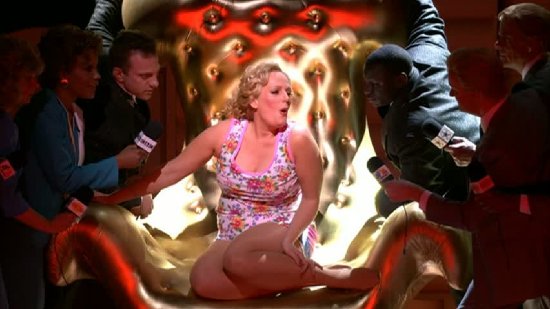
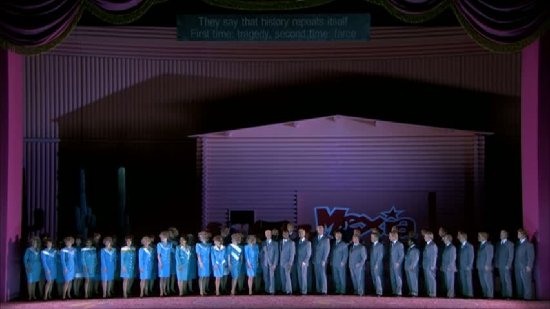
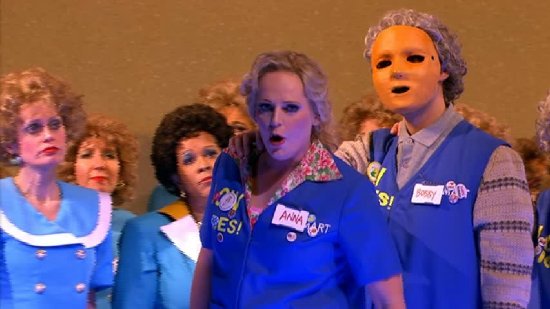
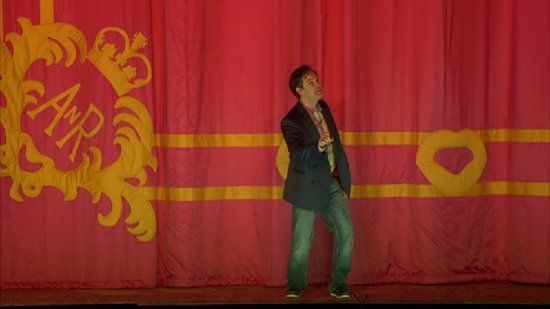
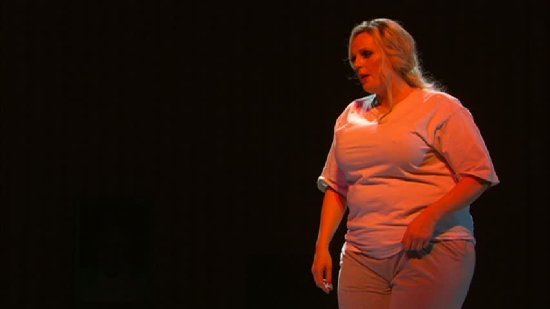
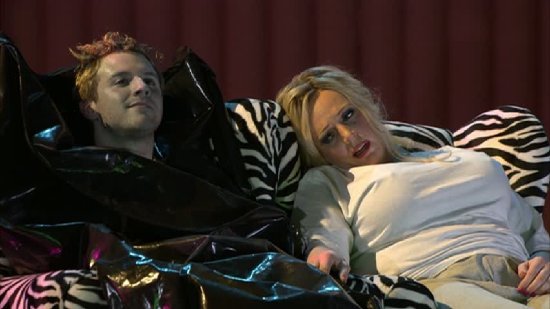
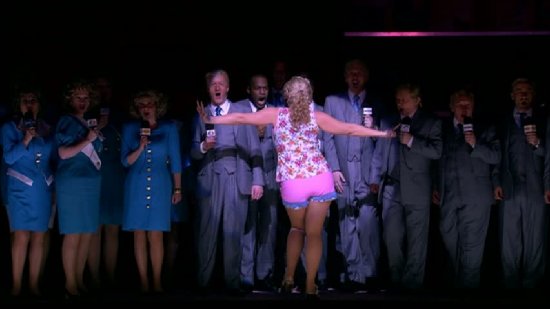
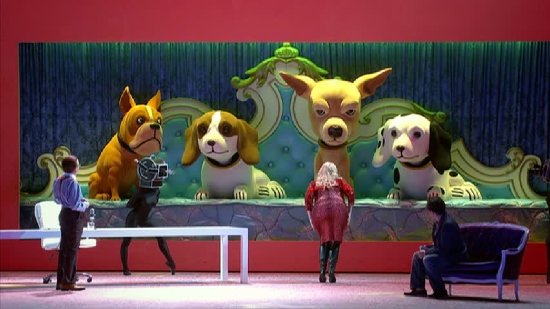
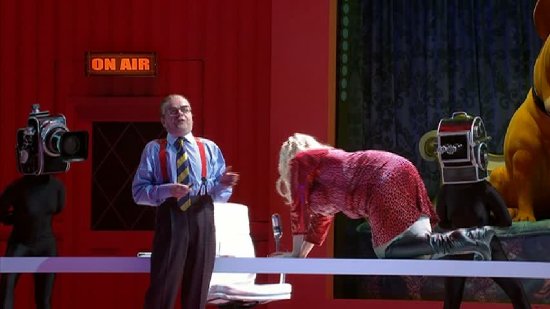
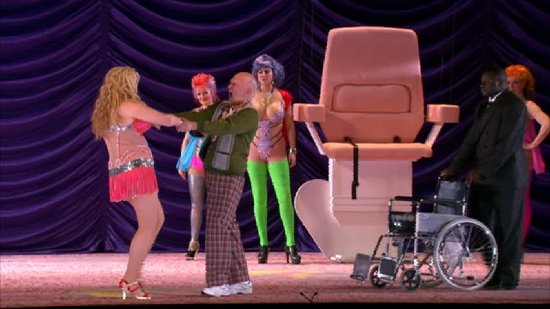
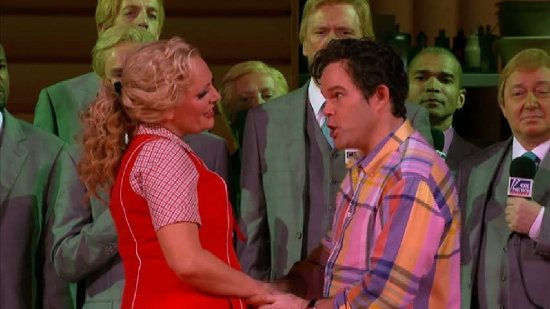
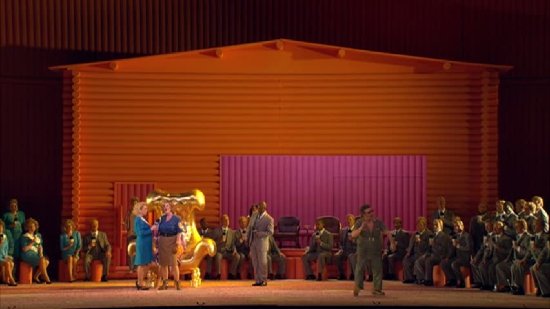
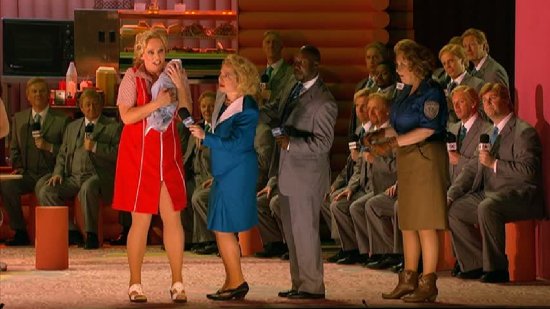
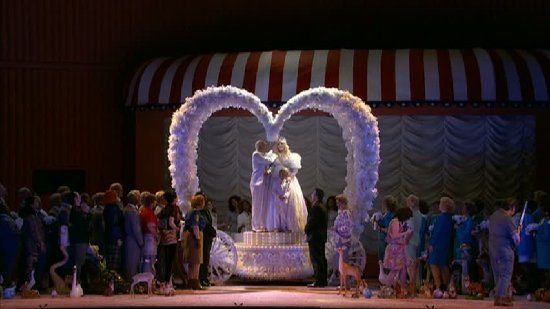
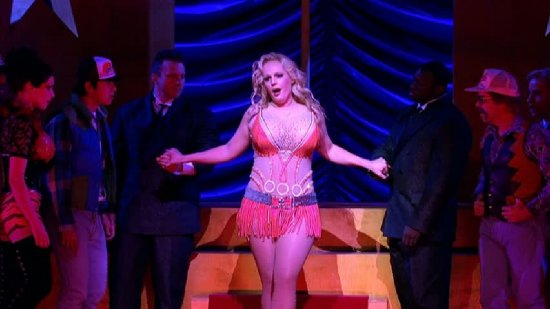
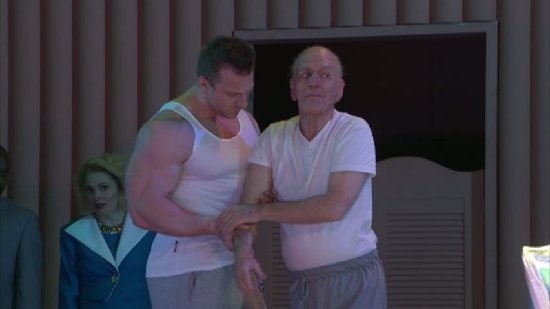
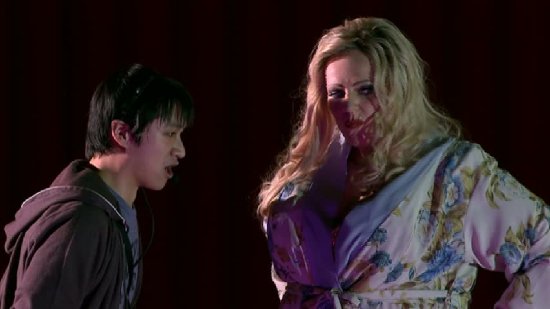
Your Opinions and Comments